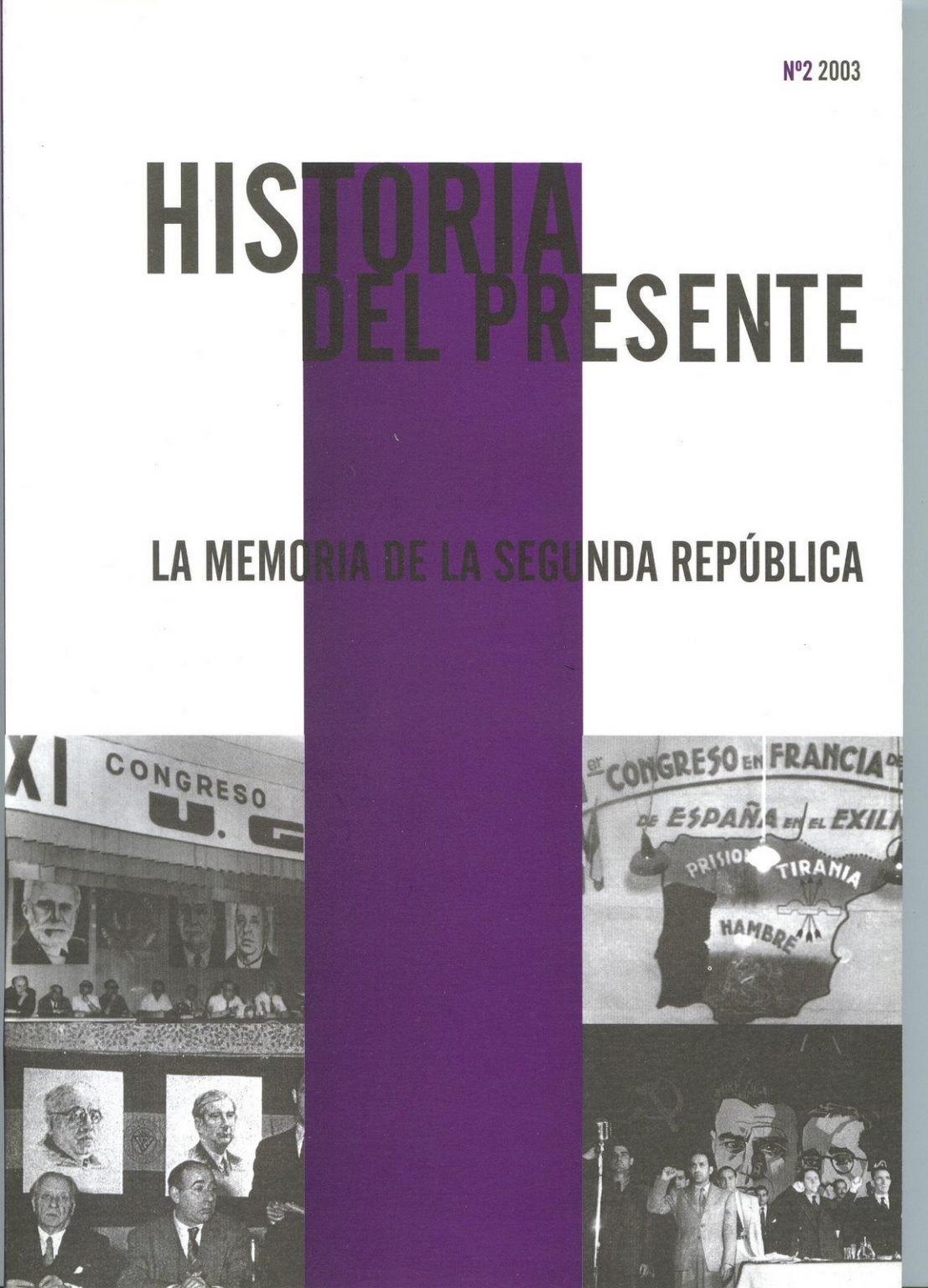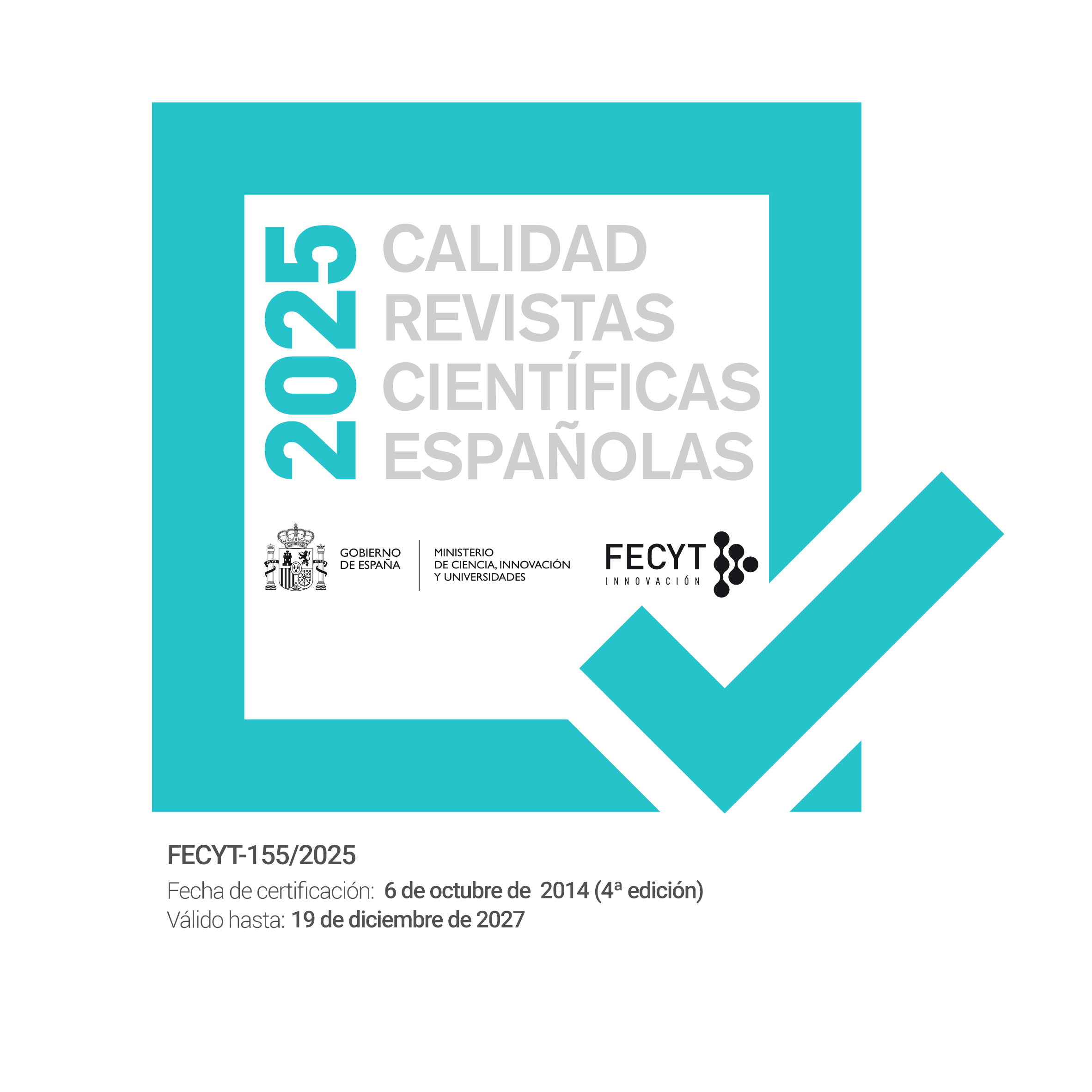Entre la memoria y la reconciliación. El recuerdo de la República y la guerra en la generación de 1968
DOI:
https://doi.org/10.5944/hdp.2.2003.41219Abstract
Memories of the Republic and the Civil War among the post war generations, even among those actively involved in opposing Franco's rergime, appear today to be contradictory. On the one hando, there war an awareness of the need to revie the cultural ans intellectual tradition, wich had been destroyed by the war an the repression, in order to reconstruct civil society. On yhe other hand, to heal the wound opened by the war, wich the regime kept open throug propaganda and its own continuing existence, was an absolute political priority, even though it discouraged the young from Republican exile. From their point of view, the past should not be allowed to compromise the construction of a future democratic society, not founded in the legitimacy of Republican institutions, but rather in the reconciliation and the free will expressed by the Spanish people. The study carried out by the monthly journal Cuadernos para el diálogo documents how the coexistence of various biographies and vierse memories, the re-establishment of past values and a heightened awareness of recent history were not consedered as being incompatible with a political evolution from that past.
Downloads
References
ALTARES, Pedro, “Ante la muerte de Max Aub. Una carta inacabada”, Cuadernos para el Dialogo. 108 (septiembre), 1972, pp. 38-40
ARAMBERRI, Julio R., Unamuno: pensamiento político, Madrid, Tecnos, 1966 (selección y estudio preliminar de E. Díaz)
ARANGUREN, José L. L., “Testimonio y símbolo democráticos de Dionisio Ridruejo”, en Dionisio Ridruejo, de la Falange a la oposición, Madrid,...
ARAQUISTAIN, Luis, Sobre la guerra civil y en la emigración (edición de J. Tusell), Madrid, Espasa-Calpe, 1983
AUB, Max, La gallina ciega. Diario español, Barcelona, Alba, 1995
BESTEIRO, Julián, El problema de Marruecos y la guerra europea, Madrid, Edicusa, 1970
DÍAZ, Elias, “¿Qué significa querer la paz?”, en Actas del Congreso sobre Derecho y Paz de la Sociedad Española de Filosofía Jurídica y Social,...
DÍAZ, Elias, “1975: otro aniversario (Franco contra Pablo Iglesias)”, en Pablo Iglesias (1870-1925'), Madrid, Fundación Pablo Iglesias,...
DÍAZ, Elias, “Breves notas para la prehistoria y la intrahistoria de Sistema”, Sistema 100 (enero) 1991, pp. 5-15
DÍAZ, Elias, “Los intelectuales y la oposición política”, en J. Tusell, A. Alted y A. Mateos (coord.), La oposición al régimen de Franco,...
DÍAZ, Elias, Pensamiento español en la era de Franco (1936-1975), Madrid, Tecnos, 1983
FAGEN, Patricia W., Transterrados y ciudadanos, México, Fondo de Cultura Económica, 1973
GARCÍA ESCUDERO, José M., Los españoles de la conciliación, Madrid, Austral, 1987
GELI, Caries y HUERTAS CLAVERIA, Josep-M., Las tres vidas de "Destino", Barcelona, Anagrama, 1991
ILIE, Paul, Literatura y exilio interior, Madrid, Fundamentos, 1981
LALCONA, Javier F. El idealismo político de Ortega y Gasset, Edicusa, 1900
PLATA, Gabriel, La razón romántica. La cultura política del progresismo español a través de Triunfo (1962-1975), Madrid, Biblioteca Nueva,...
RÍOS, Femando de los, El sentido humanista del socialismo (prólogo de Elias Díaz), Madrid, Castalia, 1976.
SANTOS JULIÁ “¿Falange liberal o intelectuales fascistas?”, Claves de la razón práctica 121 (abril) 2002, pp. 4-13
SARTORIUS, Nicolás y ALFAYA, Javier, La memoria insumisa. Sobre la dictadura de Franco, Madrid, Espasa, 1999
SENDER, Ramón J., prólogo a la edición de Contraataque, Salamanca, Almar, 1978
TERRÓN, Eloy, J. Sanz del Rio, Textos escogidos, Barcelona, Ediciones Cultura Popular, 1968
TERRÓN, Eloy, La filosofía social del krausismo español, Madrid, Edicusa, 1973
VALENTE, José A., “Melancolía del destierro”, Punto cero (Poesía: 1953-1971), Barcelona, Barral 1972
Downloads
Published
How to Cite
Issue
Section
License

This work is licensed under a Creative Commons Attribution-NonCommercial 4.0 International License.
Esta obra está bajo una licencia internacional de uso: Atribución-NoComercial 4.0 Internacional https://creativecommons.org/licenses/by-nc/4.0/deed.es
Esta licencia permite a otros compartir el trabajo con un reconocimiento de la autoría del trabajo y de la publicación inicial en esta revista. Se pueden copiar, usar, difundir, transmitir y exponer públicamente, siempre que: i) se cite la autoría y la fuente original de su publicación (revista, editorial y URL de la obra); ii) no se usen para fines comerciales.









